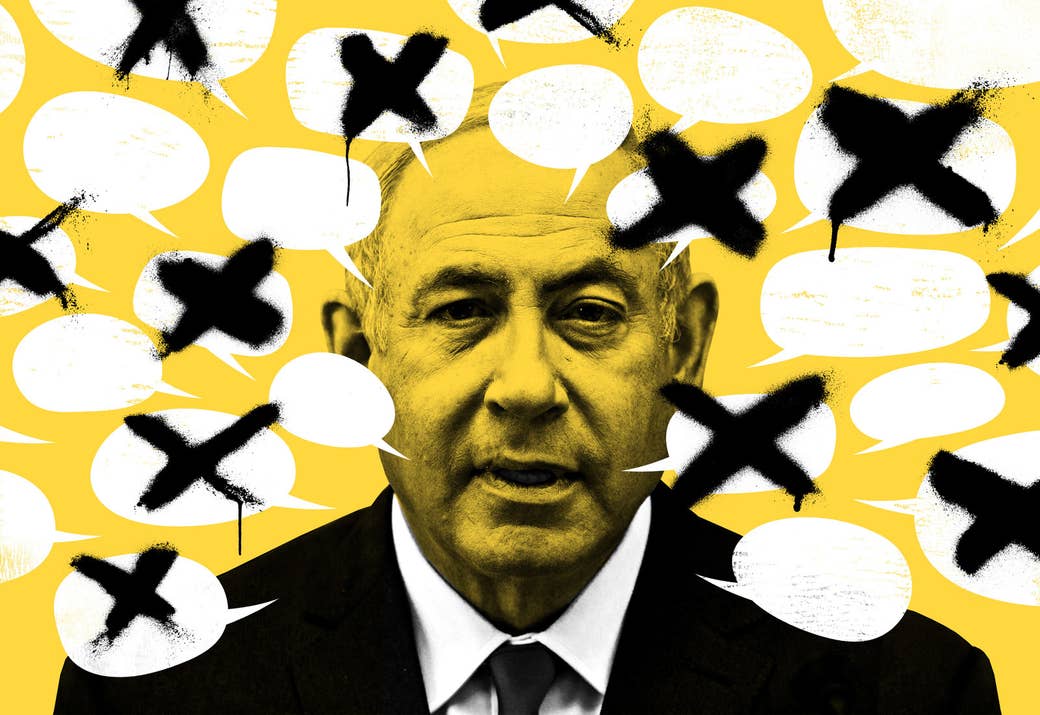
The only Israeli organization working with Facebook to fact-check news ahead of Israel’s elections started last week, just days before voters go to the polls.
The Whistle, the only internationally accredited fact-checking group in Israel, is checking content that’s been flagged as possibly containing misinformation by either Facebook or users.
In an email to BuzzFeed News, Facebook called its work with the Whistle a “step forward” in reducing misinformation, and said it was working to expand its efforts globally.
The Whistle, which was integrated into the financial newspaper Globes earlier this year, consists of just five staffers and a handful of student volunteers.
Its work with Facebook and Globes has taken place amid a tumultuous campaign season that has involved plenty of accusations and personal attacks from candidates. Israeli Prime Minister Benjamin Netanyahu’s campaign has taken pages from President Donald Trump’s playbook, including calling his main rival Benny Gantz “unstable,” while Gantz recently accused Netanyahu of trying to steal the elections. There have been more than a few surreal moments too, like the time Justice Minister Ayelet Shaked of the New Right party taunted her critics by releasing a parody ad for a perfume called “Fascism.”
Experts in Israel have been warning about the risk of organized misinformation campaigns on social media, including on Election Day. In a policy paper, Ron Shamir and Eli Bahar, who both previously worked with the Shin Bet, Israel’s domestic security agency, argue that Israel is particularly at risk for such campaigns.
“Israel is a riven and polarized society with strong internal tensions over many questions: Jewish-Arab relations, religion and society, the future of the occupied territories and more,” the authors wrote, saying undermining the public’s trust in the electoral process could harm social ties.
Voters in Israel will decide whether Netanyahu will stay on as prime minister on Tuesday, in a heated electoral environment where 47 political parties are competing for votes. Just weeks ago, Israel’s attorney general said Netanyahu would be indicted on corruption charges. The most recent polls show a close race between the parties led by Netanyahu and Gantz, and whoever wins will have to form a governing coalition after the election.
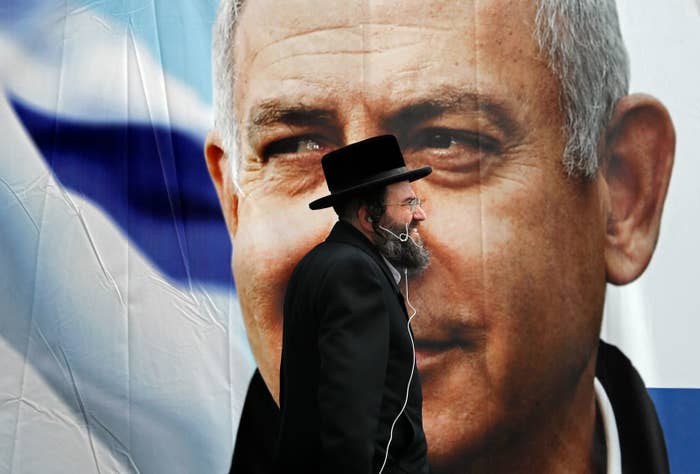
A recent press conference where Netanyahu, bidding for a fifth term, presented a “bot” to journalists encapsulated the unique craziness of political disinformation in a country known for its multiple narratives of history and current events, all of which claim a monopoly on the truth.
“Are you a bot?” Netanyahu asked the man appearing with him at the press event. “Are you real?”
“As you can see, I’m not a robot,” the man told assembled journalists in Jerusalem.
Netanyahu called the bizarre press conference on Monday after a nonprofit watchdog, the Big Bots Project, said in a report that a network of fake social media users had been deployed to help his Likud party in next week’s general election. The report stated the accounts seemed to be run by people rather than automated “bots.”
“I thought it was an April Fool’s joke, but it’s not,” Netanyahu said of the Yediot Aharonot–New York Times story on the report.
The man who denied being a robot was 64-year-old real estate agent Giora Ezra, who had tweeted under the name “Captain George.” Israeli media later found support in his earlier tweets for far-right causes in Israel, while the Big Bots Project said it had never claimed all the accounts it identified were bots, just that they were being coordinated to boost Netanyahu and criticize his rivals.
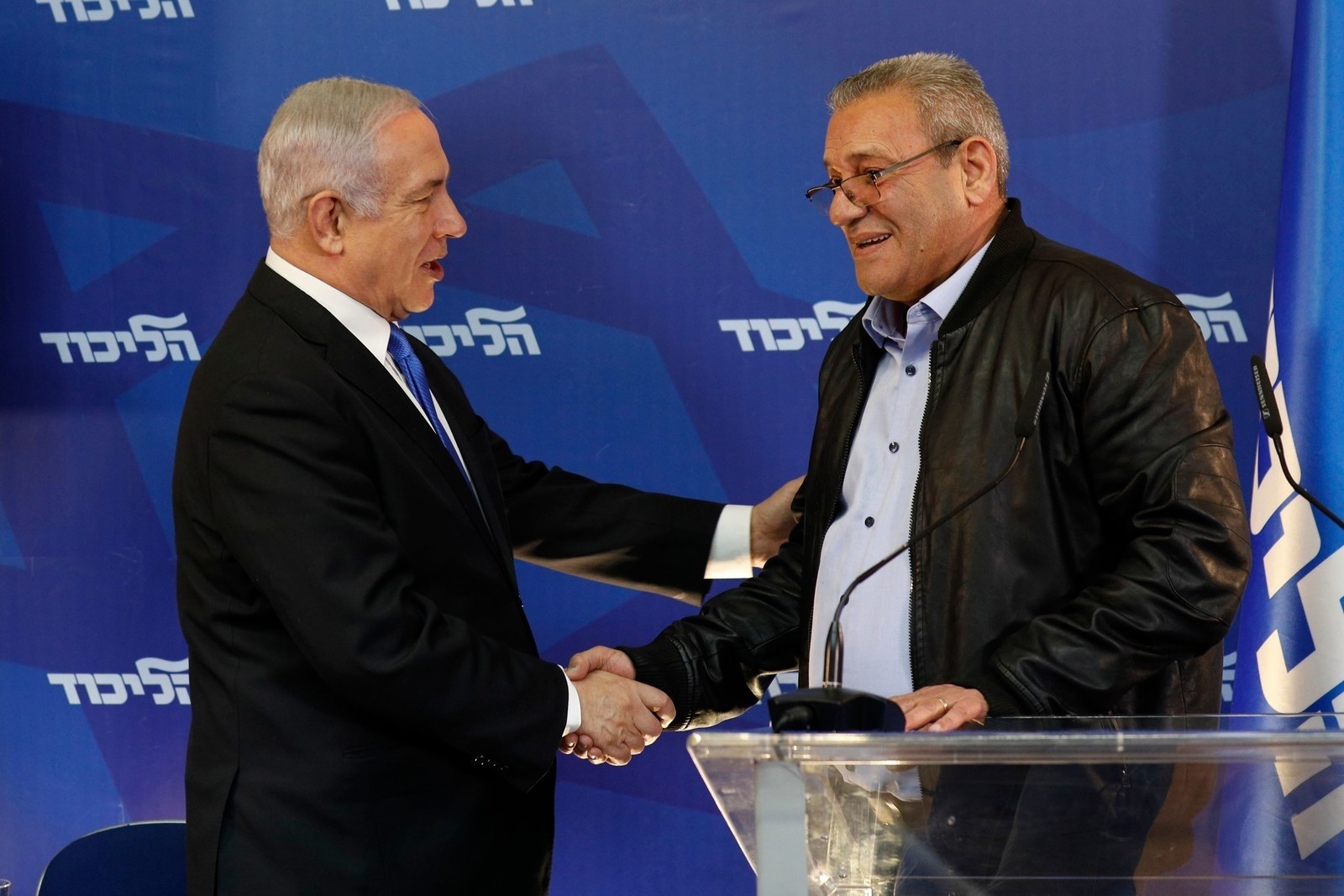
This weekend, BuzzFeed News reported how Twitter had suspended dozens of suspicious Hebrew-language accounts run by a controversial Chinese religious group.
Organized disinformation campaigns are as prevalent in Israel as anywhere in the world. Misinformation about campaigns has spread widely through social media bots and fraudulent text messages, according to media firm Vocativ.
Against this backdrop, evaluating whether political leaders’ statements are true or false can be a fraught task. But Israeli entrepreneur Boaz Rakocz founded the Whistle to do just that. The 37-year-old from Tel Aviv believes the work his team does is more vital than ever.
The Whistle is the only Israeli organization that has been accredited by the International Fact-Checking Network, a qualification for a third-party organization to work with Facebook on spotting misinformation. As a result, it’s the only Israeli organization working with Facebook on this issue at all.
The Whistle started doing internal trial runs for Facebook in March, and will carry on working with Facebook after the election.
“We gradually roll out new programs and products because it is important to understand and test how those programs are working in each country. This expansion with the Whistle is a step forward in our efforts to combat misinformation, and we'll continue to take steps to expand our efforts globally this year,” a spokesperson for Facebook said in an email. She also noted that the Whistle got its accreditation “just recently,” though the organization first received its certification from the fact-checking network last January, and renewed it about a month ago.
As with other fact-checking organizations that work with Facebook, the Whistle checks content that’s been flagged as possibly containing misinformation by either Facebook or users. It then rates the content based on its truthfulness, and when users try to share it, they’ll see a warning if the Whistle determined it wasn’t true. Facebook also reduces the item’s distribution by showing it lower in a user’s News Feed. “In our past experience, once a story is rated as false, we’ve been able to reduce its distribution by more than 80%,” the Facebook spokesperson said.
In the content it has produced for its website as well as the column it produces for Globes, the Whistle has focused exclusively on politicians’ statements, but for Facebook it will zero in instead on misinformation being put forward by other popular accounts, including opinion leaders and civil society groups.
“Facebook doesn’t want to create a situation where certain worldviews are censored,” Rakocz explained in an interview at Globes’ offices. “Their primary target is hoaxes and conspiracies.”
Like in the US, Facebook has come under fire in Israel over its content moderation. Israeli officials including Shaked, the justice minister, have put pressure on Facebook to do more to take down inflammatory posts, but Palestinian rights groups say Facebook has infringed on Palestinians’ freedom of speech, taking down posts and accounts that don’t violate Facebook’s terms without explanation.
As with other fact-checking organizations that work with Facebook in other countries, the Whistle checks content that’s been flagged as possibly containing misinformation by either Facebook or users. It then rates the content based on its truthfulness, and when users try to share it, they’ll see a warning if the Whistle determined it wasn’t true.
The group hopes to hire more staff in light of the Facebook deal. Its current small staff already has a heavy workload, and misinformation is a significant problem on Hebrew-language Facebook. Israel is one of many countries — ranging from Sri Lanka to Myanmar — where the social network has been accused of having too few content moderators proficient in local languages, leaving the company incapable of enforcing its own rules against hate speech and content inciting violence.
“There is a problem in Israel where a group of people will mass report a page as racist speech, and Facebook will take it down,” said Noa Barak, an editor at the Whistle.
Amid an onslaught of criticism from politicians, civil society groups, and the media over its role in spreading propaganda and misinformation ahead of elections around the world, Facebook has partnered with 45 fact-checking organizations like the Whistle in countries around the world. But it has faced criticism from organizations including Snopes for not taking the process seriously enough.
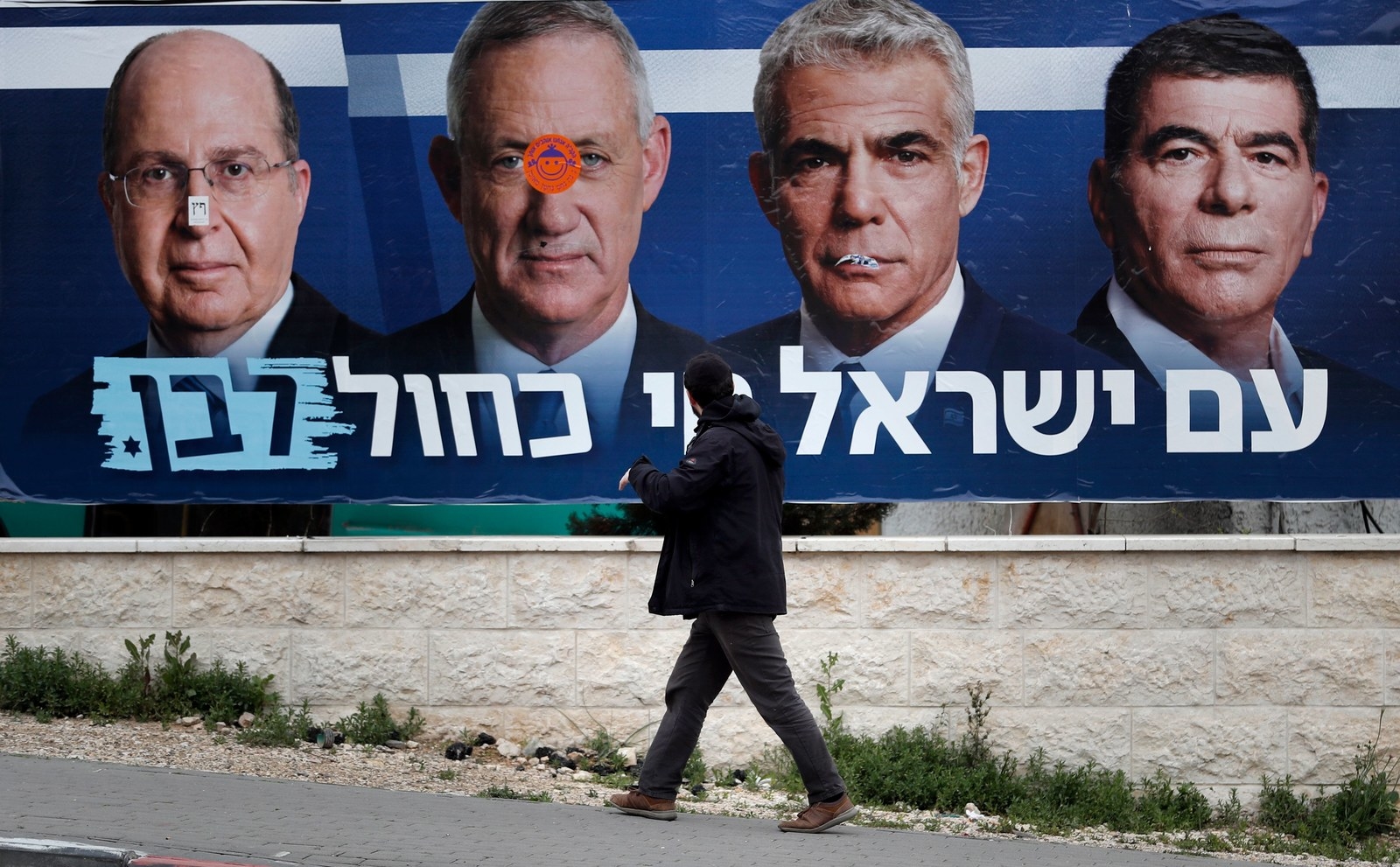
Rakocz dreamed up the Whistle in 2015 as a kind of Israeli answer to PolitiFact, going after statements that could be checked instead of things that were a matter of opinion. At the time he was working for an organization called the Knesset Social Guard — a kind of watchdog group that monitors hearings and analyzes legislation put forth by Israel’s legislature in an effort to promote social justice and civic participation. He came out disillusioned. “I finished with a broken heart and an understanding that the Knesset is broken,” he said.
He could create more impact, he thought, through the media.
At first, he wanted to fact-check the press itself. But he quickly realized that would be too difficult for a handful of people to do. Journalists writing about Israel and the Palestinian territories are some of the most scrutinized in the world, often by well-funded organizations that aim to police bias in the media. Rakocz thought he could make a bigger impact by fact-checking politicians’ statements directly.
Rakocz, Barak, and a couple of colleagues set up shop in a small office in Tel Aviv — consisting of two tables, five chairs, and a shared kitchenette — and began publishing fact-checks on their website. Traffic was hard to drum up, but they knew they were having an impact when politicians or their staff would call up screaming about something they had written. It was rare for someone to actually admit they were wrong, but on at least one occasion, they noticed a politician’s talking points changed after their fact-check had been published.
Some fact-checks can take just an hour or two while other, more complex ones can take days.
The work the Whistle is doing for Facebook is separate from its work for the paper. Rakocz declined to speak on record about the exact terms of the organization’s contract with Facebook, except to note that Facebook is compensating the Whistle based on its work.
“Fact-checking as a practice was part of the job for journalism, but none of the major news outlets have [dedicated] fact-checking services anymore,” Barak said. “This is part of the reason that fact-checking organizations had to rise. This is new in Israel.”
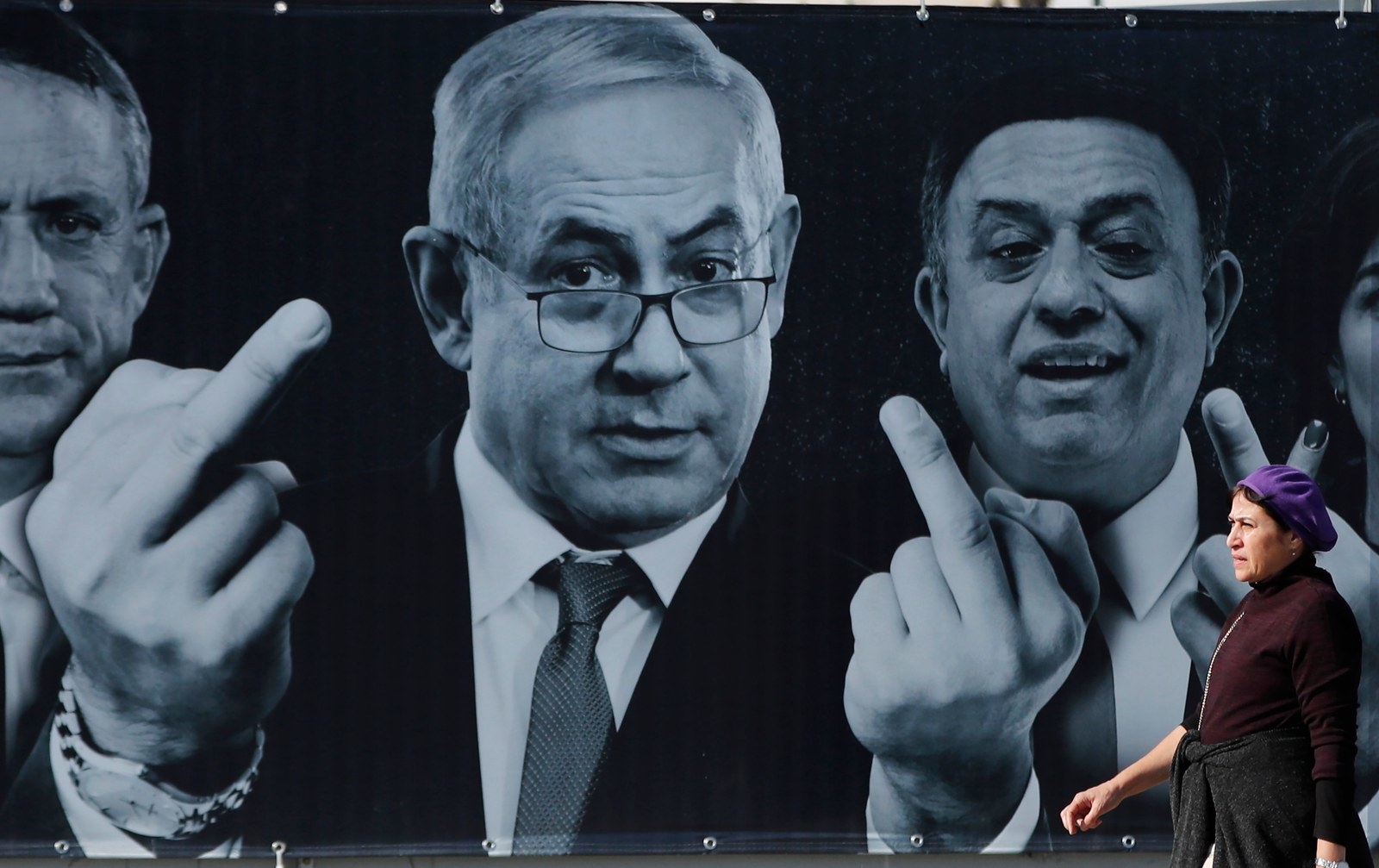
Fact-checking organizations have been on the rise in the US since before the 2016 election, but the proliferation of conspiracy theories and state-sponsored disinformation on social media sparked a resurgence of demand for journalists and researchers evaluating the truthfulness politicians’ statements. But in Israel, fact-checking doesn’t have much of a history outside of journalism, and Rakocz said he looked mostly to organizations based abroad for inspiration for the Whistle.
The small staff means they can only check a few statements — but claims repeat themselves. A politician who falsely stated that not many Israelis from the liberal stronghold of northern Tel Aviv serve in the military, for example, was easily rebutted. The staff regularly watches hours of television interviews with politicians every day. “I’m not even going to get into the damage that it does to your brain and your soul,” Rakocz said.
On Tuesday, Netanyahu faces a strong challenge from Gantz, the leader of centrist Blue and White party. President Trump has put his weight behind Netanyahu’s reelection, hosting him at the White House last month, just weeks before the election.
Shortly after the elections, the Trump administration plans to roll out a peace plan that is sure to be contentious, and Israel’s next prime minister will have to work with the US on it. The staff of the Whistle have plenty of work ahead of them this year.
“This is part of gaining back public trust in the press,” Barak said. “Without that, we are in chaos.” ●
